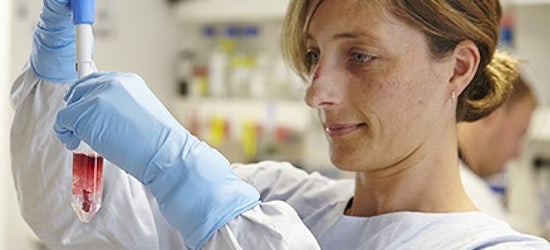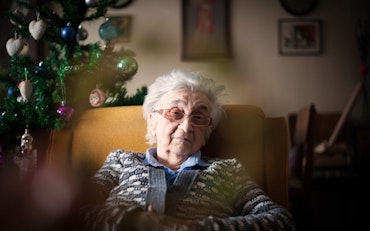On the road to cures for cancer
A team of international researchers at Australia’s Walter and Eliza Hall Institute of Medical Research in Melbourne has found a new compound that effectively kills off a protein essential for the growth of up to a quarter of all cancers.

Recent discoveries are bringing us closer to curing some cancers
It’s thought this research could hold the promise for treatment of blood cancers such as acute myeloid leukaemia, lymphoma and multiple myeloma, as well as solid cancers such as melanoma and cancers of the lung and breast.
Recently published in the journal Nature, the research outlines how the compound named S63845 targets the protein MCL1 – the protein which keeps many cancer cells alive.
Institute scientist Associate Professor Guillaume Lessene, who led the Walter and Eliza Hall Institute’s research team in Melbourne, says the work provided the first clear preclinical evidence that inhibiting MCL1 was effective in targeting several cancer types.
“MCL1 is important for many cancers because it is a pro-survival protein that allows the cancerous cells to evade the process of programmed cell death that normally removes cancer cells from the body,” Associate Professor Lessene says. “Extensive studies performed in a variety of cancer models have shown that S63845 potently targets cancer cells dependent on MCL1 for their survival.”
The institute team of Associate Professor Lessene worked with haematologist Associate Professor Andrew Wei and Dr Donia Moujalled from The Alfred Hospital and Servier scientists, to demonstrate that not only was the compound effective against several cancer types, but that it could also be delivered at doses that were well tolerated by normal cells.
This research is adding to the list of cancer breakthroughs just this year.
Scientists at the Australian National University (ANU) have been working with researchers in France to find new ways to detect and monitor breast cancer. Just recently they announced a breakthrough which could see women using a blood test to see if tissue is healthy or cancerous rather than invasive and expensive tests such as biopsies.
A medical trial of the drug pembriolizumab being used to treat stage four lung cancer has so far yielded some very positive results. The research which involved 16 countries, including Australia found approximately 70 percent of the participants were still alive after 12 months of being treated – indeed, some were in complete remission.
Meanwhile scientists at NSW University achieved a world-first breakthrough in developing nanomedicine technology to deliver ‘gene silencing’ drugs to the difficult to treat pancreatic tumours.

Having lost both parents to cancer, it’s advancements such as these which drive DPS Publishing Founder and CEO David Baker to participate in events raising funds for cancer research, prevention and awareness.
“Our children have experienced all of their grandparents being diagnosed with cancers: pancreatic; sarcoma; kidney & lung and bowel cancer,” he says. “Only the grandparent with bowel cancer was successfully treated and ‘cured’ and the others were palliated by family and friends at home in their last months.”
As a keen cyclist, Mr Baker’s latest challenge is participating once again in the Beat Cancer Tour, which is raising funds for Cancer Council SA to invest in research to find a cure. As part of the official Santos Tour Down Under program, the event involves cycling the same gruelling 800km covered by international cyclists in the greatest cycling race in the Southern Hemisphere.
For every dollar that Mr Baker raises for cancer research and the search for cures, a further two dollars is invested by the State Government and Universities. Mr Baker hopes to raise $15,000 which becomes $45,000 with the fund matching.
He points out as Australia’s population ages the number of older people diagnosed with cancers will increase exponentially. “This is why I am riding in the Beat Cancer Tour again in 2017, to raise awareness of the increased rate of elderly people diagnosed with terminal cancers and the absolute need for research into finding cures for these,” he says.










